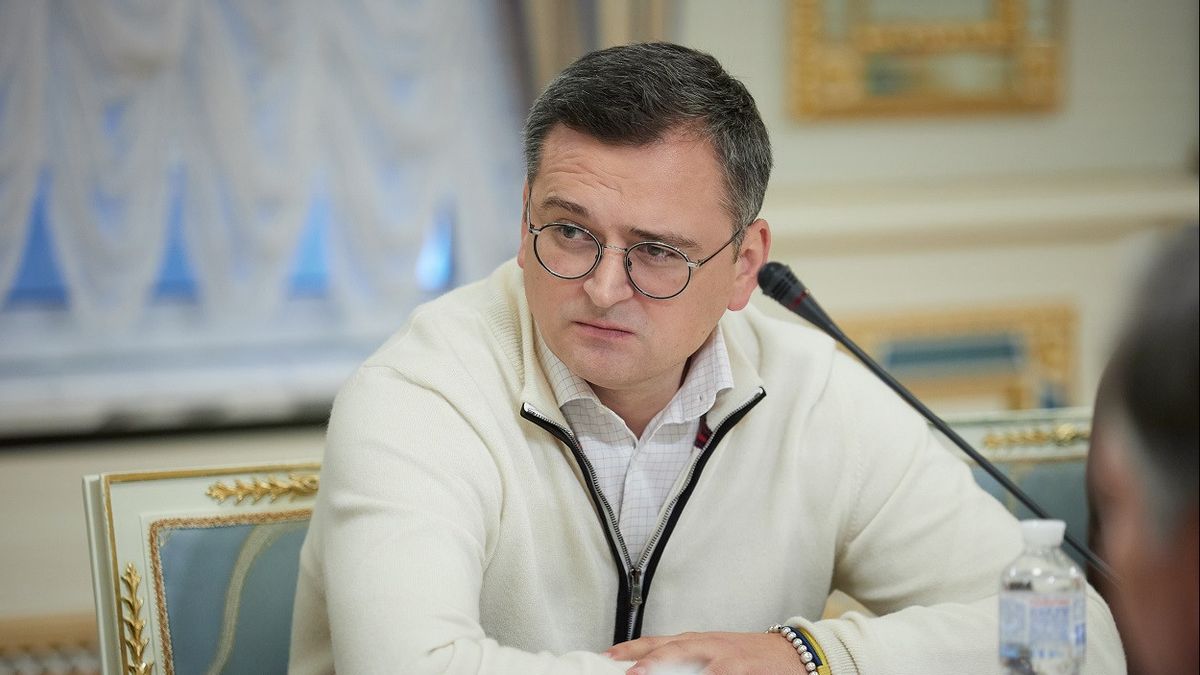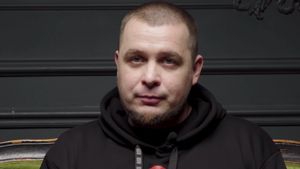JAKARTA - The North Atlantic Treaty Organization (NATO) should play a bigger role in security in the Black Sea, integrating Ukraine's air and missile defense with alliance members, Ukrainian Foreign Minister Dmytro Kuleba said on Thursday.
Not without reason, because the Black Sea and the coast of Ukraine have become important battlefields since Russia's invasion of Ukraine last year.
"The Black Sea plays an important role in making all of Europe peaceful and future-oriented," Kuleba said, speaking via video link, during a Black Sea security conference in the Romanian capital, Bucharest.
"Sadly, it also shows how quickly things can deteriorate if one ignores threats. It's time to turn the Black Sea into the Baltic Sea, NATO's ocean," he said.
That statement was dismissed by Moscow, where Kremlin spokesman Dmitry Peskov told a briefing: "The Black Sea will never be a NATO sea."
He added: "This is a common sea, it must be an ocean of cooperation, interaction, and security for all its littoral states. And this security is inseparable."
Both Moscow and Kyiv rely on the sea for trade, including supplying grain markets as the world's two largest food exporters. The Russian blockade threatened to cause a global food crisis last year, until the United Nations and Turkey brokered a deal to keep the ports open, with diplomacy continuing to extend it.
"We need to tackle common Russian problems together. For example, I support an expert's idea to integrate Ukraine's air and missile defense systems with one of its NATO allies in the Black and Baltic Seas," he said.
Separately, NATO Deputy Secretary General Mircea Geoana did not directly comment on Kuleba's call, but later said the alliance was continuing to increase its presence in the Black Sea region.
A joint task force with the European Union has been set up to deal with critical infrastructure, he said.
"I encourage countries in the Black Sea region to adopt and be active in this new format because the Black Sea has infrastructure... that we need to protect," said Geoana.
Meanwhile, Romanian Foreign Minister Bogdan Aurescu said a strong NATO foothold in the Black Sea going forward was a "must" and his country would continue to work with NATO allies and develop a rotating presence in the Black Sea.
It is known that Russia has a Black Sea Fleet based in Crimea, the Ukrainian peninsula which Moscow captured and annexed in 2014. Seizing Ukrainian ports has been Russia's main goal.
Since last year's invasion, Moscow has seized the entire coast of the Sea of Azov that drains into the Black Sea, but its movement along the Black Sea coast has stalled about 130 km (80 miles) east of Ukraine's main port of Odesa.
Kyiv lacks a comparable navy, but Russia's impact at sea has diminished since Ukraine sank Russia's flagship cruiser Moskva a year ago and recaptured Snake Island, a rocky outcrop near the sea route to Odesa.
Meanwhile in northern Europe, the security map around the Baltic Sea was redrawn last year by Finland and Sweden's decisions to register to join NATO, leaving Russia soon to be the only coastal nation outside the Western military alliance.
SEE ALSO:
Applications by Ukraine and Georgia to join NATO will have a similar impact on the Black Sea, of which Bulgaria, Romania and Turkey are already members.
Kuleba said the upcoming NATO summit in Vilnius would be an opportunity to resume Ukraine's long-sought NATO membership, "to show that the door is not only open, but there is a clear plan of when and how Ukraine will enter it."
Ukrainian Defense Minister Oleksii Reznikov said Kyiv needed guarantees that would make future Russian aggression impossible. "There is no alternative to Ukraine's accession to NATO," he said.
The English, Chinese, Japanese, Arabic, and French versions are automatically generated by the AI. So there may still be inaccuracies in translating, please always see Indonesian as our main language. (system supported by DigitalSiber.id)


















